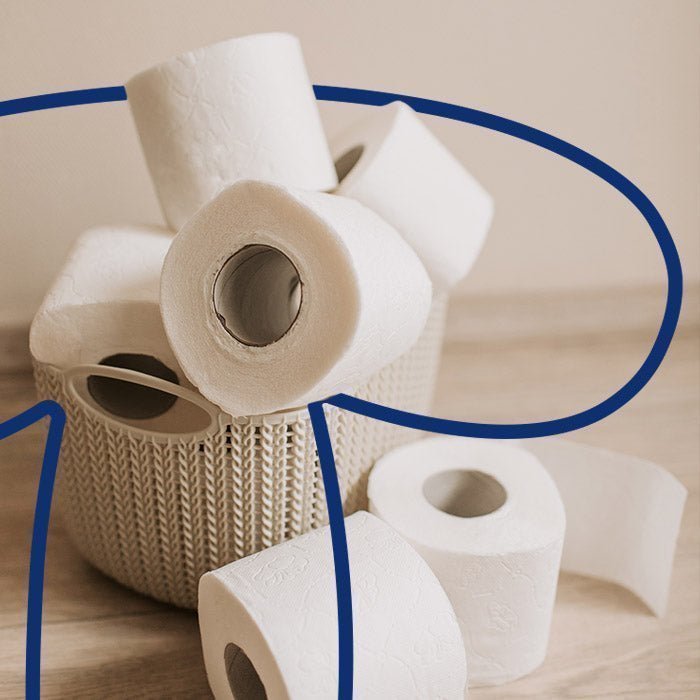Stomach ache is something that many of us will experience on multiple occasions throughout our lives. From a temporary stomach bug to excessive gas and dodgy food, there are multiple factors that can cause stomach ache.
The severity of stomach ache will vary in individuals, most of the time the pain you experience will be moderate, however there may be something underlying if you are experiencing more severe and frequent pain.
Causes of stomach ache
Stomach ache can be caused by a number of issues, most of the time, it can be a symptom of something else. Some of the most common causes of stomach ache are:
- Indigestion: Whilst indigestion alone does not typically cause stomach ache, some of the symptoms associated with it such as constipation, bloating, heartburn, discomfort in the upper abdomen can all contribute towards stomach ache.
- Trapped wind: Trapped wind can be painful and is typically one of the most common causes of stomach ache. Trapped wind can be caused by certain foods and conditions such as constipation, IBS and food intolerances such as lactose and Gluten.
- Constipation: If you are passing less than 3 stools in a week you may start to experience signs of bloating, stomach ache, cramps and sickness. It is possible to lose your appetite altogether when suffering from constipation.
- Gastroenteritis: Commonly known as the stomach flu, is an infection of the stomach which can affect people of all ages; however it is most common in young children. It is usually caused by viruses, bacteria, or parasites and can result in stomach pain, nausea, vomiting, and diarrhoea. In rare occasions, gastroenteritis can develop into IBS in approximately 1 in 10 individuals. A gut parasite test that detects common parasites such as Cryptosporidium, Cyclospora and Giardia Lambia can be used to identify their presence within your gut.
- Food intolerances: Some individuals may experience stomach pain after eating certain foods due to intolerances or sensitivities. Common problem foods include lactose intolerance, gluten intolerance (celiac disease), or fructose malabsorption.
- Gastroesophageal reflux disease (GERD): More commonly known as acid reflux, is a burning sensation that is caused by stomach acid traveling up towards the oesophagus. Lifestyle and diet are a huge factor when it comes to causes of GERD and can be triggered by smoking, alcohol, fatty foods and spicy foods. Many women can also experience this during pregnancy.
- Medicines: NSAIDs (Non-steroidal Anti-Inflammatory Drugs) such as Naproxen can damage the lining of the stomach and potentially lead to peptic ulcers, particularly when taken on an empty stomach.
- Gut dysbiosis: The main symptoms of gut dysbiosis include gas, bloating, diarrhoea and constipation. it can also cause abdominal cramps and stomach ache. A gut microbiome health test can pinpoint if gut dysbiosis is the cause of your stomach ache by measuring your gut microbiome.
Symptoms of stomach ache
Common symptoms of stomach ache include:
- A dull ache, sharp pains, or cramps in your lower abdomen
- Bloating after eating
- Feeling of fullness
- Nausea or vomiting
- Stomach rumbling
- Diarrhoea
- Constipation
- Excessive gas/flatulence
- Acid reflux or heartburn
Foods that trigger stomach ache
There are certain foods that are known to cause stomach ache more than others. Whilst consuming these types of foods on occasion is unlikely to cause any lasting harm, if you experience symptoms of a frequent basis due to your food consumption, you should consider removing them from your diet as frequent exposure to symptoms can lead to additional complications such as damage to your stomach lining.
- Spicy Foods
- Fatty foods
- Fried food
- Alcohol
- Dairy products especially in those with a lactose intolerance
- Gluten-containing grains for individuals with celiac disease (gluten intolerance)
- Gas-producing foods such as certain vegetables, beans, lentils, or carbonated drinks
Lear more about food intolerance causes, symptoms, triggers and treatment with our detailed guide.
When should I be concerned about stomach ache?
While most cases of stomach ache are not serious and will gradually get better on its own, there are certain situations when you should be contact your doctor, such as:
- Severe pain, that starts to affect your day-to-day life
- If the pain is persistent and lasting for a few hours at a time
- You are experiencing any sort of bleeding from your bottom
- You experience and pain or discomfort whilst going to the toilet
- Unexplained weight loss
- Signs of dehydration, if you are experiencing diarrhoea, nausea and/or sickness and are struggling to keep liquids down, you should contact your GP as it is likely that this will lead to signs of dehydration
- Difficulty swallowing food
How to get rid of stomach ache
There are many aspects and causes of stomach ache that are within your control, for stomach ache that is caused by diet and lifestyle there are simple changes that you can introduce to help relieve the symptoms of stomach ache and even prevent it altogether.
- Practice mindfulness: Take a break and try relaxation techniques, stretches and light exercise.
- Listen to your hunger cues: Overeating can overload our digestive system and lead to other symptoms such as bloating and fatigue after eating.
- Heat application: For stomach ache related to menstrual cramps, applying heat to the area can help to reduce your symptoms.
- Food intolerance diet changes: If you notice that your stomach ache can be triggered by particular foods, you should look to remove them from your diet for a period of time to see if this has any affect on your symptoms. Alternatively, you can take a food intolerance blood test to help you identify foods may affect your digestive health.
- Over-the-counter medications
How is it treated?
In many cases, stomach ache will tend to subside on its own without the need for medical treatment. However, if the pain is severe, frequent, or associated with any of the more serious symptoms listed above, your doctor may choose to prescribe treatment. Treatment options may include:
- Prescription medications
- Over the counter medicines
- Antibiotics: If a bacterial infection is causing stomach ache, antibiotics may be prescribed.
- Dietary modifications: Making key adjustments to your diet having identified your problem foods should help to reduce the symptoms and severity of your stomach ache.





